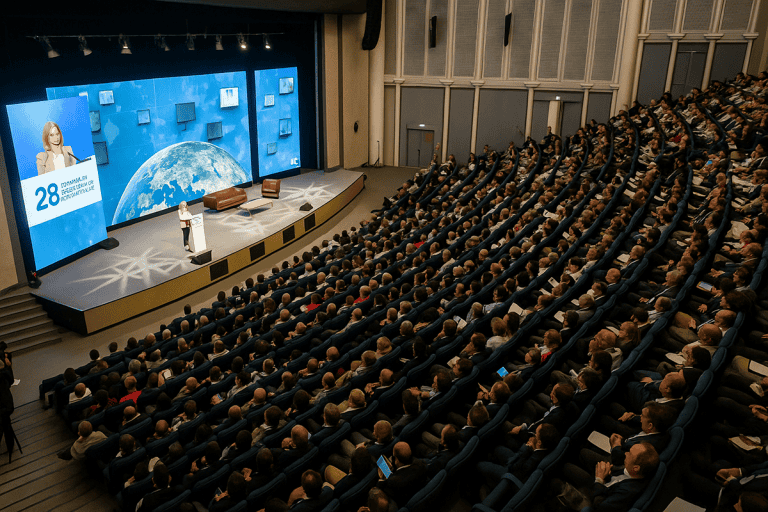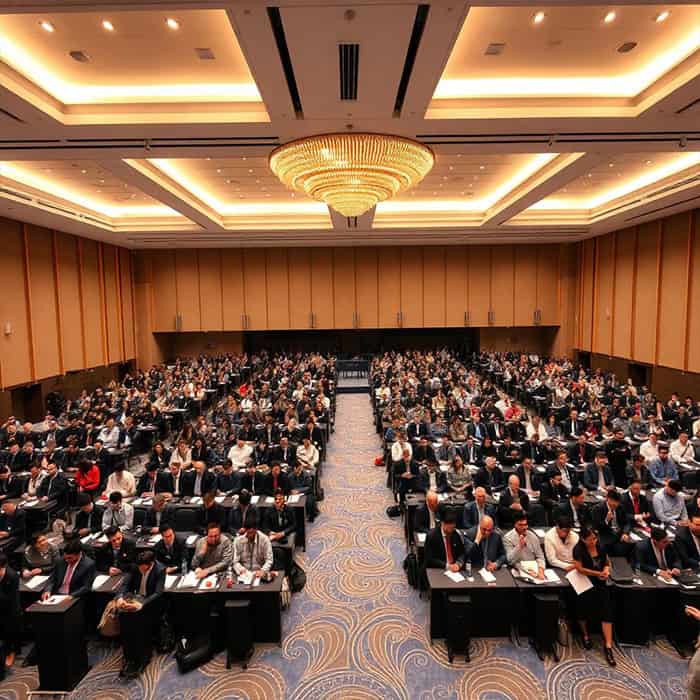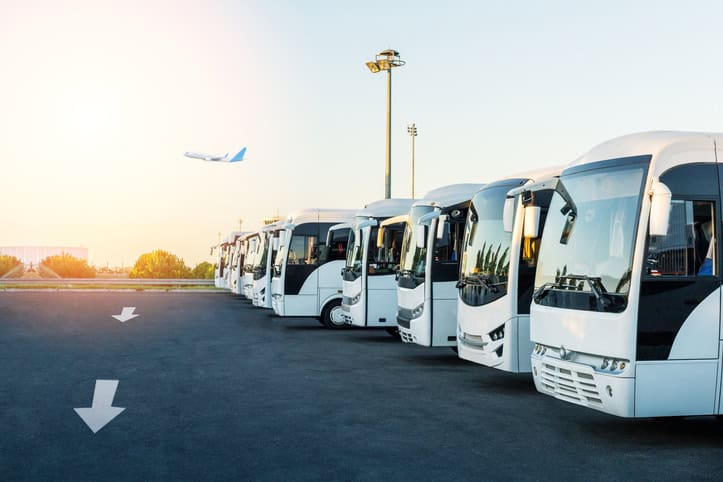Organizing a congress day is a strategic challenge for any company wishing to make its mark in its sector with a structured, effective and memorable professional event.Organizing a congress involves much more than simply booking a room or defining a program: it's a complete event that requires the coordination of numerous participants, budget management, date planning, choice of venue, targeted participants and a relevant theme. Whether it's a medical congress, a scientific conference, a corporate seminar or a mixed hybrid event, every step counts. You need to define the objectives, choose the type of content, plan break times, registration, reception, exhibition areas, plenary sessions and workshops. Good communication, the presence of sponsors, a well-designed site, smooth logistics and appropriate transport solutions are essential for success. Everyone involved, from speakers to participants, needs to have a memorable experience. If you're wondering how to organize a congress, SOP Events can help you every step of the way, from specifications to on-site management, to ensure the success of your event day.

There's a lot more to organizing a convention than simply bringing participants together to discuss a professional topic. First, you need to understand how a convention differs from other corporate event formats such as a conference, seminar or colloquium.
A congress is a large-scale gathering, often annual, designed to share advances in a professional or scientific sector, with several sessions, speakers, exhibitors and even an exhibition.
A conference is shorter and focused on one or a few topics, usually led by one or more speakers.
The colloquium is often academic or scientific, structured around papers and debates.
Seminars, on the other hand, encourage collaborative work, often in small groups, around workshops or team-building activities.

For a company, organizing a congress is not only a way of raising its profile and boosting communication, but also of building internal cohesion. It's an opportunity to :
Conferences can also be used to highlight in-house talent, strengthen the employer brand, and unite employees around a common project. The venue, program and type of conference must be consistent with the event's objective.

The date and time chosen to organize a corporate convention depend on the context: product launch, year-end closing, strategic presentation, management seminar, etc.
Here are a few typical cases:
💡 The challenge is to allow enough time for planning (6 to 12 months depending on size), to help participants enroll easily, and to guarantee a smooth work experience.

➡️ See other topics:
First and foremost, you need to clearly define the objectives of your congress: knowledge transfer, brand enhancement, product launch, scientific event or medical congress... Each type of congress has its own specificities, as does its target audience: employees, partners, customers, scientists, professionals from the same sector.
💡 Tip: draw up a set of specifications covering the message to be conveyed, the topics to be addressed, the number of participants targeted, the time allowed, and the expected results.
Organizing a convention depends on good budget management. It must include :
venue rental,
travel and transportation,
catering,
speakers (fees, accommodation),
communication,
contingencies (10% margin recommended).
The choice of venue is strategic: it influences participation, comfort, event image and logistics. Choose a :
easily accessible (train station, airport, parking),
with sufficient capacity,
flexible according to the program (plenary sessions, workshops, breaks, networking).
The date should avoid vacations, bank holidays and major competing events.
A clear, dynamic program is the key to commitment. It should include :
plenary sessions (conferences, keynotes),
themed workshops or panels,
networking breaks,
one or more interactive activities.
Vary formats to avoid monotony: speakers, round tables, demonstrations, live polls...
🎯 Tip: think about communicating the program in advance via your website, an online ticketing service or a dedicated app.
Speakers are the heart of the content. Please plan ahead:
expert profiles aligned with your theme,
a diversity of viewpoints,
a uniform presentation charter.
Remember to anticipate the logistics for each speaker (transport, accommodation, equipment) and send them practical information in advance.
🔗 See also: Business event organization
Good event communication maximizes the number of participants and boosts your visibility:
Save the date, invitation e-mails,
Social networking publications,
Dedicated web page or site,
Online registration platform.
💡 Recommended tools: Mailchimp, LinkedIn Events, Imagina, Eventbrite.
🔗 See also: Why organize an event?
Welcoming participants is crucial to getting the day off to a good start:
smooth check-in, name badges,
spatial orientation, clear signage,
staff available to support you.
Set up a team dedicated to flow management, break coordination, schedule compliance and safety.
🔗 See also: Trade show organization
After the congress, you must :
send out a satisfaction questionnaire,
broadcast presentations and replays,
publish a review on social networks or the website,
thank our partners and sponsors.
This enables us to measure impact, keep in touch with participants and prepare for the next edition.

The choice of venue cannot be dissociated from access logistics. To maximize participation :
💡 Tip: integrate a group booking module or interactive map on the event website.
🔗 See also:
All-inclusive hotel seminar
Corporate travel organization

A fluid registration system is essential to anticipate the number of participants and manage the reception efficiently. This involves :
📲 Consider using platforms like Imagina, Evenium, or Eventbrite.

Beyond the content, the experience of each participant makes the difference. For a successful congress:
✅ Plan convivial breaks (coffees, lunches, cocktails) to encourage networking.
✅ Offer comfortable, well-appointed spaces.
✅ Offer clear, useful support materials (programs, mobile applications, signage).
✅ Rely on original animations or interactive interventions to maintain attention.
💡 Tip: think "user journey" right from the design stage, to anticipate every stage experienced by the participant.

More and more companies want to limit the environmental impact of their events. Here are a few tips for a greener congress:
🌿 Limit paper printing by favoring digital.
🌿 Offer shared transport solutions or offset carbon emissions.
🌿 Choose local and responsible service providers.
🌿 Favor reusable or compostable tableware.
👉 SOP Events can advise you on how to incorporate these best practices into your convention day.
Organizing a convention day doesn't stop on the big day. Post-event follow-up is key:
✅ Send satisfaction questionnaires to measure success.
✅ Broadcast presentations or replays to prolong impact.
✅ Publish photos and videos on your communication channels.
✅ Personalized thanks to speakers, sponsors and participants.
This strengthens the relationship, improves customer loyalty and is already paving the way for the next edition.
Organizing a one-day conference requires rigor, creativity and technical expertise. SOP Events can help:
✅ From strategic conception to on-site execution.
✅ With a single point of contact to simplify your exchanges.
✅ Thanks to a large network of qualified venues, service providers and speakers.
✅ With tailor-made solutions adapted to your budget.
✅ In France and abroad.
We transform your objectives into a fluid, impactful and unforgettable event.
To organize a medical congress, follow several key steps:
Careful organization ensures the success of your medical congress.
Steps to a successful event include:
For a successful convention, every step must be carefully thought out.
To define the theme of your conference:
Here are some tips for a successful seminar day:
To choose the ideal venue for your conference:
Drawing up a projected budget for a convention is essential:
To enrich your conference, you can include a variety of activities:
To promote a congress effectively :